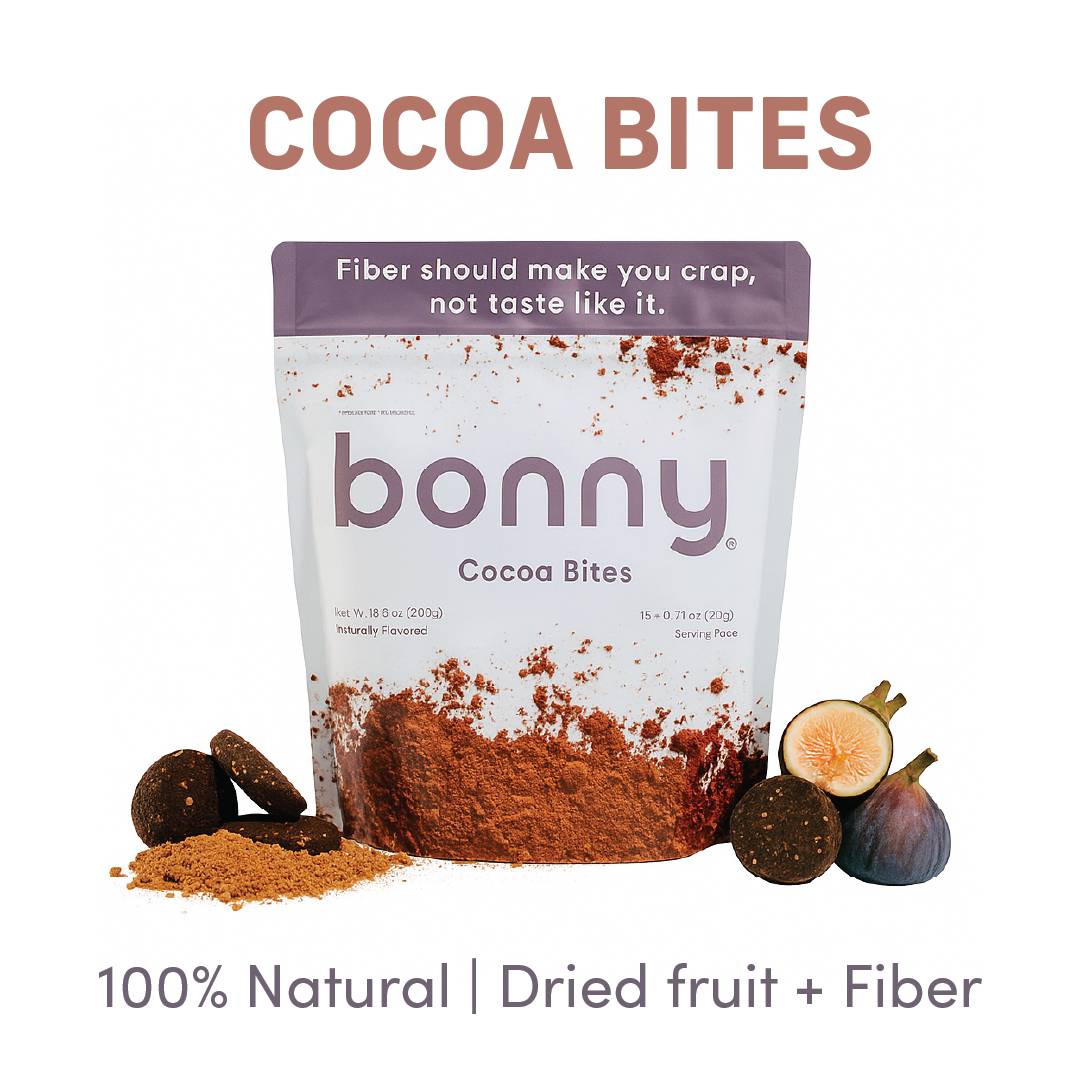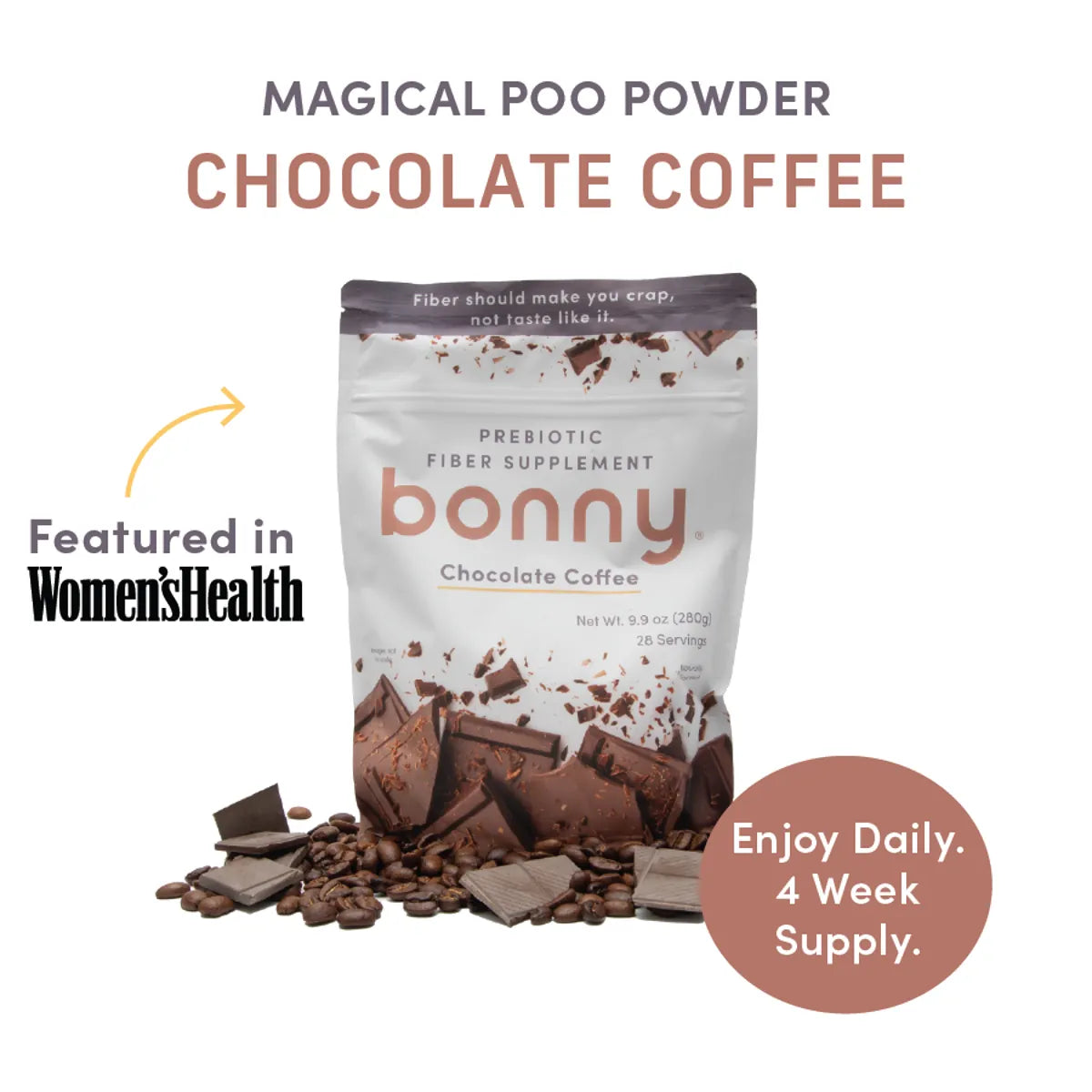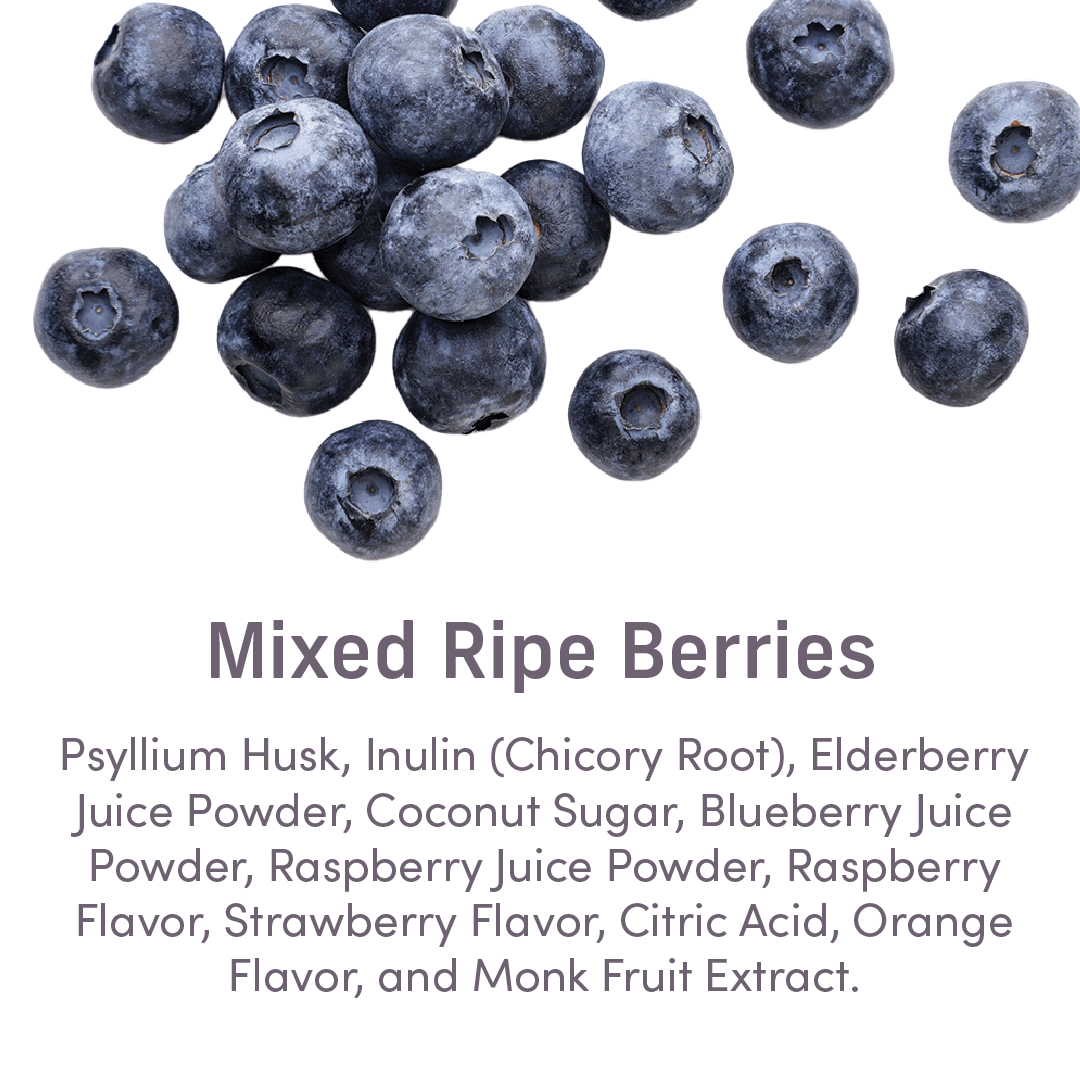Pop quiz: do you know what inulin is? It’s part of the fiber family.
Inulin is a fiber found in fruits, vegetables, and herbs, and is produced naturally by plants. It is a prebiotic, used as an energy source, and a natural sweetener. It’s pretty cool. Keep reading to learn why we love inulin and include it in Bonny’s custom fiber powder blend.
Tell Me More About Inulin

ABC Network / Via media.giphy.com
When we talk about inulin, we are talking about fiber.
Fiber is an indigestible carbohydrate which means it cannot be broken down into sugar molecules, unlike most carbohydrates, think of your favorites like pasta and bread. Fiber acts as the broom in the gut cleaning our intestines of toxins that build up and stick to the colon. This build can cause issues like nutrient malabsorption, weight gain, and even diseases.
If you’ve been reading our blog, you know we are fiber fans and that there are two types of fiber: soluble and insoluble fiber.
Soluble fiber dissolves in water and creates a gel-like substance in the gut that helps reduce blood sugar and cholesterol. The other is insoluble fiber, which does not dissolve in water but instead helps food pass through the digestive system by attracting water into your stool bulking it up for a more effortless bowel movement.
Inulin is a type of soluble fiber that the German scientist Valentin Rose discovered in the 1800s. (Yes, the 1800s!) It is a plant fiber available abundantly in chicory root plants, along with an estimated 36,000 other plants!
Since inulin fiber is indigestible, it ferments in the gut and as it passes through the digestive system. Inulin is prebiotic meaning that feeds the good bacteria in the gut also known as probiotics. Some foods that you may have already come across in your kitchen pantry or at the grocery are prebiotic like bananas, whole wheat, garlic, onions, and Jerusalem artichokes.
What's the Difference Between Inulin and Psyllium Husk?
Psyllium husk, like inulin, is also a soluble fiber. Psyllium husk is extracted from the plantago ovata plant and its health benefits include digestive improvement and regulating cholesterol levels.
Psyllium loves to absorb water helping it prevent constipation by softening hard stools and improving the consistency of loose stools to lessen diarrhea. Psyllium absorbs more water relative to its friend inulin but is not as fermentable as inulin in the gut.
The Many Health Benefits of Inulin
Inulin comes with many health benefits including:
Helping with constipation. Because inulin is fiber, it can help stimulate bowel movements. Fiber increases the size and weight of your stool and softens it. A bulky stool is easier to pass, which lessens the chance of constipation. Fiber help solidify the stool because it absorbs water.
Improvement of Gut Health. Inulin is prebiotic which helps healthy bacteria grow in the gut making the digestive system function better. As we mentioned earlier, prebiotics is food for the good bacteria in our gut, which help our body fight infections by strengthening our immune system. 70% of the immune system is in the gut which is why it is important to treat it right.
Aiding in weight management and improving metabolism. Fiber helps with weight management. Soluble fiber’s absorption of water turns to gel, making you feel fuller. Soluble fiber helps reduces blood cholesterol and glucose levels. The body needs to use cholesterol to produce bile, fluid from the liver that is stored in the gallbladder. Bile helps with digestion by breaking down fats into fatty acids, which get into the body through the digestive tract. When inulin goes through the small intestine, it binds to bile and blocks the absorption of excess cholesterol, and takes it to the toilet where it belongs. It also slows down carbohydrate absorption and regulates blood sugar levels.
Inulin may help improve heart health. As mentioned above, inulin can reduce the absorption of cholesterol in your bloodstream. This in turn can improve heart health by lowering the body’s bad cholesterol.
Sugar replacement. Inulin is a type of fructan found in plants and used as an energy reserve. It has minimal effects on blood glucose levels, so it can be used to replace sugar, fat, and flour, and can be suitable for people with diabetes.
Help improve calcium absorption. Increased intake of inulin may help boost calcium absorption by increasing mineral absorption.
It may help prevent colon cancer. When inulin gets fermented in our gut, it produces metabolites that are good for our health. Metabolites are substances made or used when the body breaks down food, drugs or chemicals, or its own tissue. A research study showed that inulin inhibits cell growth and reduces metastasis activities of colon cancer in lab animals. More research is needed but the study is encouraging.
Where to Get Inulin

HBO / Via media.giphy.com
Inulin is naturally found in plant foods like Jerusalem artichokes, asparagus, onion, leeks, garlic, bananas, wheat bran, and chicory root.
Inulin supplements are available in health specialty stores and online stores and come in different forms like capsules, powders, bars, cereals, meal replacements as well as fiber formulas.
Bonny: Great source of Inulin
Bonny is a prebiotic fiber powder that contains good stuff for your gut. Bonny has inulin from chicory root which is one of its prominent ingredients. The good news is that the Bonny fiber supplement is all-natural, research-backed, and most of all, it is delicious.
Bonny is vegan, gluten-free, and fab. Our fiber comes in amazing flavors like Apple Pie, Mixed Ripe Berries, and Super Strawberry.
As always, we wish you pleasant poops!




